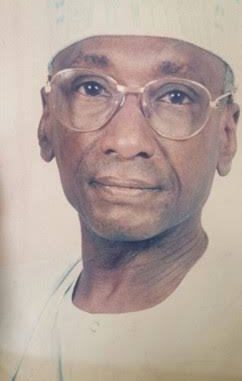
Royalty in the ancient city of Zaria lost one of its shining stars when Alhaji Gidado Idris bowed to the pangs of death late last week. It also brings to a close a memorable chapter in the annals of the civil service. He was not among the fabled super permanent secretaries that dictated the affairs of the nation during the military dispensation, a reflection of his natural qualities of humility, wisdom, discipline and foresight.
Nonetheless, he was accepted as a quintessential civil servant who, in his life time, represented the purest in the tradition of the bureaucracy. Raised in the lofty and resplendent manners royalty still boasts of, he went on to acquire fancy education that prepared him for the role he was to play in the civil service, first in the Northern Region in the colonial and post-colonial days as well as in sthe federal civil service of independent Nigeria.
Alhaji Gidado, an experienced public servant, was recognised among his contemporaries as an embodiment of generosity of spirit, hard work and was at the core of the civil service that nurtured the nascent bureaucratic structure the nation inherited from the exiting colonial masters. Remarkably, he was endowed with institutional memory of the chain of events that pockmarked the country’s political landscape as she embarked on her journey to nationhood.
Alhaji Gidado was noted as a repository of knowledge so valuable to younger generation of Nigerian youth in search of clues as to how the nation missed the boat and at what point. As one of the most valued technocrats of his time, he traversed the different stages of the political evolution of the country and served in strategic positions.
In his days in the public service, the late Gidado reflected and embodied, in his comportment and carriage, the cherished values of hard work, discipline, professionalism and integrity. To many with whom he interacted in his earthly sojourn, he came across as a highly principled bridge builder.
In that process, he made it part of his style to cultivate friendship from the lowest to the highest segments of the society. It is not a surprise, then, that he will be remembered as one Nigerian who saw life as a reality to be lived and not a mystery to be solved.
He served the country for 42 years in different capacities and rose to the pinnacle of an eventful career in the civil service before retiring in 1999. He was born into the royal Idris family in the ancient city of Zaria on March 15, 1935.
The late Idris was a trusted aide of the late Sardauna of Sokoto, Sir Ahmadu Bello, the first premier of Northern Nigeria.
As a prominent member of the Gamji political family, he was, indeed close to the Sardauna whose corpse he had the unpleasant opportunity of identifying after the late premier and his wife, Hajia Yanguwan were killed in the 1966 coup that changed the history of the country forever. He was there to give the fallen godfather of Northern politics a deserving and befitting burial according to Muslim rites.
Alhaji Gidado was educated at the Institute of Administration, Zaria which later metamorphosed into that elegant institution known today as Ahmadu Bello University. He pursued his academic dreams to the University of Leeds in the United Kingdom where he horned his administrative skills. On his return, he was appointed a District Officer, a very powerful and highly sought after position in those days and served in the Benue, Sardauna and Adamawa provinces, which in the present day Nigeria will be equivalent to governor.
He later became Private and Personal Secretary to the late Ahmadu Bello. He served as Permanent Secretary in Kaduna State from 1971 to 1975. Alhaji Gidado played a prominent role in midwifing the post- military democratic experiment as he was appointed Secretary of the Constitution Drafting Committee (CDC) in 1975 under the chairmanship of the late Chief Rotimi Williams.
He was also the Secretary of the Constituent Assembly chaired by the late Justice Udo Udoma that fine-tuned the constitution that gave life to the Second Republic. As the first Clerk of the National Assembly in 1979, he put in place the administrative structures that have continued to guide the legislature till date. Between 1984 and 1986, he was appointed Permanent Secretary, Ministry of Police Affairs.
Between 1986 and 1988, he became the Chairman of Productivity, Prices and Income board. Shortly after, he became Permanent Secretary, Ministry of Aviation. When late General Sani Abacha took over in 1993, late Gidado became the Permanent Secretary, Ministry of Finance and a few months later, he was appointed the Secretary to the Government of the Federation (SGF), a post he held till he retired, meritoriously, in 1999. A grateful nation he served so well bestowed on him the national honour of Commander of the Order of the Federal Republic (CFR), the third highest in the land.
As he goes the way of all mortals, we bid him peaceful repose in the bosom of Allah.
END

Be the first to comment